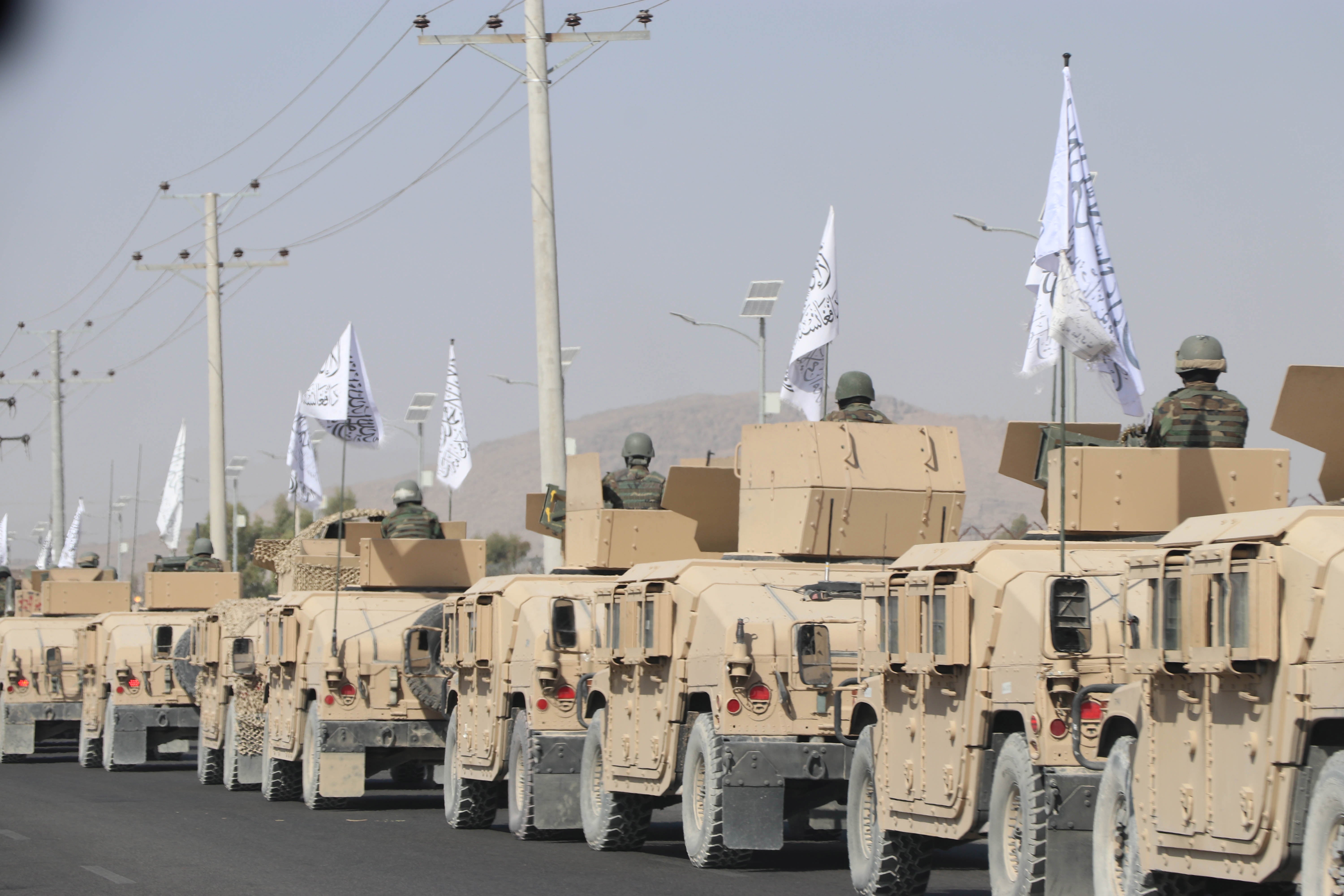Afghanistan might become tourist destination in future under ‘Taliban 2.0’ says Britain’s defence chief
It’s too soon to say the West was defeated in Afghanistan, General Sir Nick Carter tells MPs

Your support helps us to tell the story
From reproductive rights to climate change to Big Tech, The Independent is on the ground when the story is developing. Whether it's investigating the financials of Elon Musk's pro-Trump PAC or producing our latest documentary, 'The A Word', which shines a light on the American women fighting for reproductive rights, we know how important it is to parse out the facts from the messaging.
At such a critical moment in US history, we need reporters on the ground. Your donation allows us to keep sending journalists to speak to both sides of the story.
The Independent is trusted by Americans across the entire political spectrum. And unlike many other quality news outlets, we choose not to lock Americans out of our reporting and analysis with paywalls. We believe quality journalism should be available to everyone, paid for by those who can afford it.
Your support makes all the difference.The head of the British military has insisted that it is too early to say whether the West was defeated in Afghanistan, and has also claimed that the country could be a better place in the near future than people expected.
Making his last appearance before the Commons Defence Committee, General Sir Nick Carter maintained that the Taliban rulers of Afghanistan are different from their brutal predecessors and as a result the country could become far more inclusive.
The outgoing Chief of Defence Staff ( CDS) told MPs: “ Taliban 2.0 is different. There are a lot of people in Taliban 2.0 who would like to govern in a more modern way.”
He added that if moderates gain control “then there is no reason to suppose that Afghanistan over the next five years might not turn into a country that is more inclusive than it might have otherwise”.
Gen Carter was speaking to MPs on the day images emerged of the Taliban parading trucks with hanged men in Lashkar Gah, the former centre of British operations in Afghanistan, and there were more reports of female human rights workers murdered.
Women have been banned from working and the education of girls over the age of 12 has ended since the Taliban seized power in August. Opponents of the Talibs have been arrested and killed while Isis have carried out mass killings mainly targeting the Shia minority community.
Asked about his previous comment in a TV interview, just after Kabul fell, that the Taliban were just some country boys with a moral code, Gen Carter said he was quoting former Afghan President Hamid Karzai. The CDS drew comparisons with Vietnam war “where another bunch of country boys won”.
Gen Carter appeared to suggest that Afghanistan could, in the future, become a tourist destination like Vietnam. He asked committee member Mark Francois, who had been combative in his questioning “would you go to holiday in Vietnam?”. The MP, rather taken aback, said he would rather go to Las Vegas.
In the same “country boys” interview Gen Carter had stated that the Taliban are not the enemy. He told the committee, “I’d like to put on record is that I suspect people will be quite surprised to hear me say they are not the enemy.
"The reason I said that was that I had 1,000 troops on the ground and we were trying to evacuate what turned out to be 15,000 Afghans, and I wasn’t exactly, at that particular point in time, going to call out the people who could have quite easily made my life very uncomfortable on the ground."
With a number of MPs stressing that the reality was that the US, UK and Nato had lost in Afghanistan and the Taliban had won, Gen Carter said: “I think it is too early to say that defeat has occurred. Victory here needs to be measured in the results and not some great military extravaganza... And I suspect when we look back on the last 20 years, and we then look forward in 20 years time, Afghanistan may be a very different country. So I think it’s too early to say that it’s a defeat.”
Asked what he would say to British veterans who felt bitter that sacrifices over two decades had been in vain with Islamist extremists taking over the country, Gen Carter held that the debacle was political and not military.
"What unravelled the whole effort was the political context in which all of this was conducted. I am very proud of what our armed forces achieved on the battlefield. They were never defeated by a very cunning, ruthless and innovative opponent,” said the CDS.
Gen Carter told the committee that he had been carrying out his own peace efforts on “ parallel track” to the ones which took place in Qatar between the Taliban and the US because "I am one of the voices they listen to, more so probably than any other foreigner other than the odd American”.
Gen Carter continued that his close relationship with the Afghan President, Ashraf Ghani, and the Pakistani military enabled him to carry out this effort.
Pakistan had long been accused by American and British officials of feeding and watering the Taliban in their sanctuaries across the border. The rapid Taliban advance which saw them isolate and take the Afghan capital had been planned, according to some claims, by Pakistani officers.
Asked how successful the military effort had been to evacuate eligible Afghans to reach the UK since British forces withdrew, Sir Nick said: "The answer is that there are still, I’d guess, about 300-odd who we’d like to see leave Afghanistan but the challenge is how you achieve that."



Join our commenting forum
Join thought-provoking conversations, follow other Independent readers and see their replies
Comments